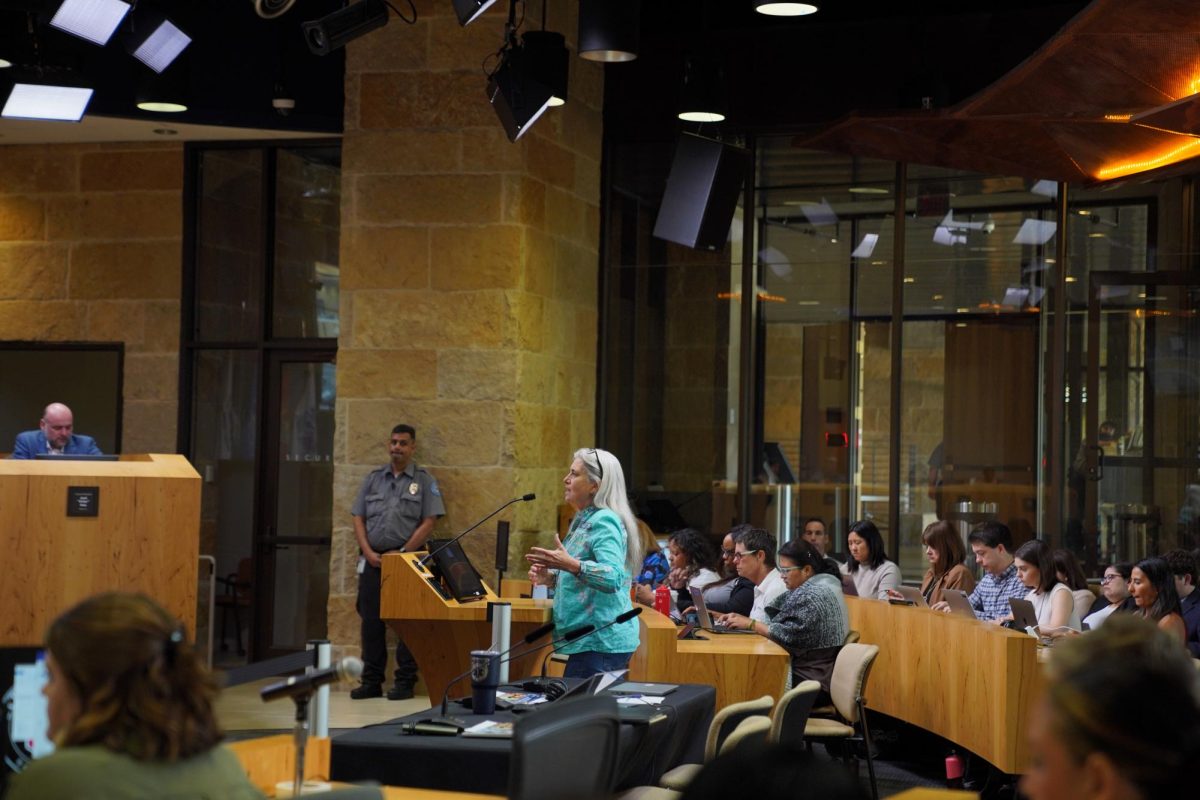A packed Austin City Hall roared with applause Thursday night after council members voted to pass a proposed ordinance for short-term rentals, or rental contracts for 30 days or less.
Prior to the new ordinance, which will take effect Oct. 1, there were no statutes in city code that addressed STRs. Local protest around the issue has grown in the last two years following the preliminary city council vote passing the STR ordinance in June. Debate has focused mainly on what role the city should play in regulating what someone can do with their own home.
The new regulations allow for both owner-occupied and commercial STRs and require that the owner of either type obtain a city permit for its operation. An owner-occupied STR is a residence rented to tenant while still occupied by the owner of the property — similar to the deals brokered by some homeowners during South By Southwest, where tourists pay to stay with people in their homes. A commercial STR is any property the owner is not living in, such as apartment complexes and rental homes.
There will now be a 3 percent cap on the number of homes that can exist as commercial STRs in any single ZIP code. There will be no cap on the number of apartment or multi-family complexes that can exist as STRs.
More than 80 people signed up to speak at Thursday’s meeting regarding the STR issue, including representatives from the Austin Board of Realtors and the local grassroots organization Protect Austin Neighborhoods.
Emily Chenevert, an Austin Board of Realtors spokeswoman, said she was pleased that the measure passed.
“We have been advocating for this all along,” she said. “We think that the regulation that was passed is reasonable and will do a lot to balance the property rights of both owners of and the folks that live next door to them.”
The decision to set no cap on the number of apartment or multi-family-complex STRs that can exist was a controversial and debated topic.
Chenevert said this ordinance was never meant to address that topic, but if an ordinance to set such a cap was proposed, then the Austin Board of Realtors would consider supporting it.
“Multi-family structures were not a part of the conversation from the very beginning,” she said. “If we are to begin to discuss that proposal type, we should do it with the relevant stakeholders, including the Austin Apartment Association,” she said.
Roughly 50 members of Protect Austin Neighborhoods picketed City Hall Thursday morning in protest of the proposed ordinance, advocating for a stronger set of restrictions for STRs.
Jason Meeker, an organizer for Protect Austin Neighborhoods, said the passed restrictions allow for too many properties to exist as STRs, a problem that will cause long-term safety and affordability issues for the city.
“Our concerns are still not answered by this ordinance,” he said. “The caps are undetermined for multi-family housing, so apartments and condos can all become short-term rentals. Neighborhoods are homes where families live, but companies like Homeaway think our neighborhoods are full of their inventory, and this ordinance sells our neighborhoods out to the highest bidder for short-term profit, but a long-term loss for the city.”
Members from Protect Austin Neighborhoods also picketed in front of Homeaway, an Austin-based international organization that markets STRs online, July 21.
Carl Shepherd, a UT alumnus and co-founder of Homeaway, said the proposed ordinance could actually hurt Homeaway’s business, as there would now be a cap on the number of commercial STR homes that can exist, but his organization still supports the ordinance because of the added safety the measure brings by forcing STR owners to register with the city.
“I feel it’s within the city’s rights to pass this measure,” he said. “What Austin needs is regulations that will make clear how to participate in this industry, so people that rent their homes are clear on how to do that. As a result of the measure, travelers will be a lot safer and neighborhoods as well.”
Meeker said Protect Austin Neighborhoods will continue to pursue this issue by following along with city lawmakers as they write out the specific language of the ordinance, and continuing to push for restrictions on apartment and multi-family-complex STRs.




















